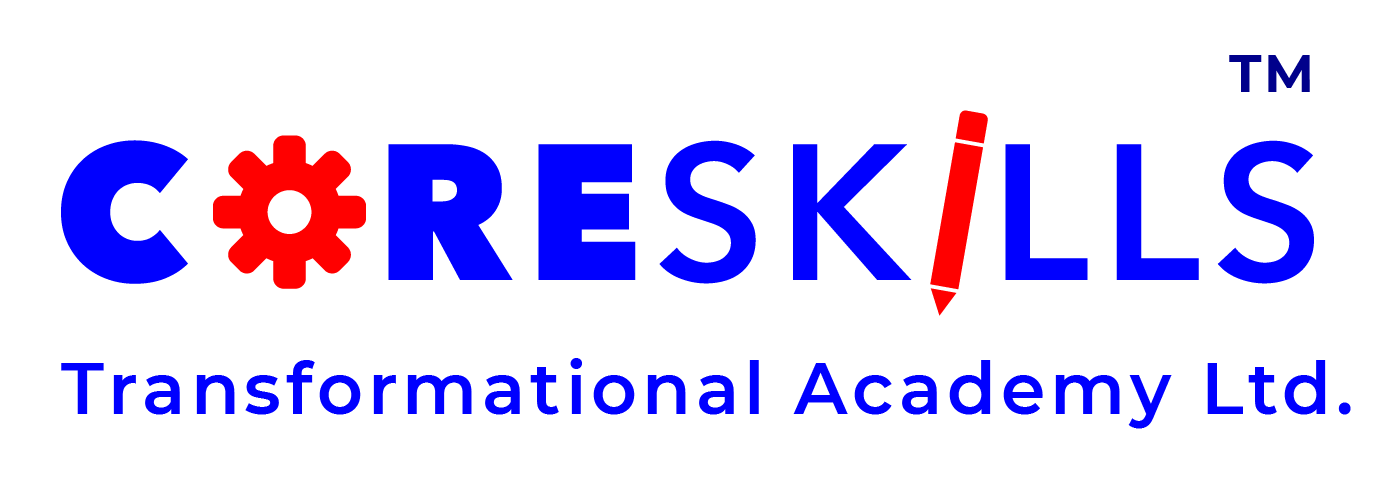Education Consultant Certification Program (Level 1)
- Description
- Curriculum
- Reviews
- Grade
Course Description
LEVEL 1: Entry-Level Education Consultant
Role: Often involves working as a support or assistant consultant under a senior professional. At this stage, consultants usually conduct research, assist with project management, and contribute to training materials.
Qualifications: Bachelor’s degree in education, psychology, or a related field; some consulting or teaching experience.
Required Skills for Level 1: Research, communication, data analysis, and basic consulting knowledge.
Program Overview
Objective:
To equip new and existing consultants with the skills and knowledge required for educational consulting, enabling them to effectively support educational institutions and drive positive outcomes in learning environments, private, low cost and public schools, homes and other educational establishments.
Duration:
Eight weeks
Structure:
The program is structured into weekly modules, each combining theoretical knowledge with practical application. Participants will engage in various activities, including case studies, discussions, and hands-on exercises, to reinforce their learning and prepare them for real-world consulting scenarios.
Overview of the Program Structure, Goals, and Learning Outcomes
Objective:
To provide participants with a clear understanding of the program’s structure, the goals they are expected to achieve, and the learning outcomes they will gain by the end of the program.
1. Introduction to the Program Structure
- Duration and Format:
- The program spans eight weeks, with each week dedicated to a specific module.
- Sessions will include a mix of self paced online video sessions, discussions, case studies, and practical exercises.
- Participants are expected to complete weekly assignments and actively engage in group activities.
- Weekly Modules:
- Each week will cover different aspects of educational consulting, starting from foundational knowledge to advanced consulting strategies.
- The program is designed to gradually build participants’ expertise, ensuring they gain both theoretical and practical skills.
- Program Logistics/Assessments:
- Participants will be evaluated through a combination of quizzes, assignments, and a final project.
- Feedback will be provided throughout the program to guide participants’ progress and development. Overview of the weekly schedule
- Setting Personal Learning Goals: Participants will set individual goals for what they hope to achieve by the end of the program.
2. Program Goals
- Skill Development:
- Equip participants with the essential skills needed to excel in educational consulting, including strategic planning, stakeholder engagement, and problem-solving.
- Knowledge Acquisition:
- Provide a deep understanding of the educational landscape, including current trends, challenges, and opportunities for consultants.
- Practical Application:
- Enable participants to apply their learning to real-world scenarios, preparing them to effectively support educational institutions.
3. Learning Outcomes
By the end of the program, participants will be able to:
- Understand the Role of an Educational Consultant:
- Define the scope and responsibilities of an educational consultant, and identify key areas where consultants can add value.
- Conduct Educational Needs Assessments:
- Analyze and assess the needs of educational institutions, identifying gaps and opportunities for improvement.
- Develop Strategic Consulting Plans:
- Create comprehensive consulting plans that address the specific needs of educational institutions, incorporating best practices and innovative solutions.
- Engage with Stakeholders:
- Effectively communicate and collaborate with various stakeholders, including educators, administrators, and policymakers.
- Implement and Evaluate Consulting Strategies:
- Execute consulting strategies in educational settings and evaluate their impact, making adjustments as necessary to achieve desired outcomes.
- Build a Professional Network:
- Establish connections with peers and industry professionals that will support ongoing development and collaboration in the field.
This session will set the stage for a successful learning journey, ensuring participants are motivated and clear about what they will achieve.
Module 1: Understanding the Education Sector
Module 2: Transitioning from an Educator to an Education Consultant
Module 3: Education Consulting Skills
Module 4: Conducting Educational Needs Assessment, Education consulting Process.
Module 5: Education Consulting Models, Framework and tools
Module 6: Curriculum Design and Development for Education Consultants Module 7: Education Consulting Implementation Strategies
Module 8 : Monitoring and Evaluation of Education Consulting Assignments
Module 9: Comprehensive Education Consulting Reports
-
1Course Outline:20
Understanding the Education Sector & Transitioning from an Educator to an Education Consultant
-
21.1) Introduction to the Education Sector30
Introduction to the Education Sector
Overview of the Education Sector: Definition and Scope
The education sector encompasses all institutions, policies, practices, and resources involved in the provision of education across all age groups and educational levels. This sector spans both formal and informal education, including primary, secondary, tertiary (higher education), vocational training, and lifelong learning opportunities. It includes public and private institutions, government agencies, non-profits, and other stakeholders that contribute to learning, skill development, and personal growth.
-
31.2) Key Players in the Education Sector30
-
41.3) Educational Policies and Regulations40
-
51.4) Current Trends And Innovations in Education:30
-
61.5) Impact of Global Events on Education30
-
71.6) Major Challenges and Opportunities in the Education Sector30
-
8Module 130
-
9Module 1 AssessmentAssignment
-
102.1) Transitioning into Education Consulting30
-
112.2) What You Need to Know30
-
122.3) What Should Be Your Goal as an Educational Consultant?30
-
132.4) Who Do Educational Consultants Work With?30
-
142.5) The Ten “Ns” You Need to Consider Before Getting Started30
-
152.6) Things You Must Put in Place Before You Get Started30
-
162.7) Strategic Tips to Get You Started30
-
17Module 230
-
18Module 2 AssessmentAssignment
-
19Course Outline:15
-
203.1 Understanding the Role of an Education Consultant30
-
213.2 Key Consulting Skills30
-
223.3 Applying Education Consulting Techniques30
-
233:4 Facilitating Effective Change Management30
-
243.5 Building a Consulting Portfolio30
-
25Create your compelling Education Consulting PortfolioAssignment
-
26Module 330
-
27Module 3 AssessmentAssignment
-
28Course Outline20
-
294.1 : Initial Contact and Contracting30
-
304.2 Initial Contact and Contracting in Education Consulting30
-
314.3 Understanding Educational Needs Assessment30
-
324. 4 Steps in Conducting a Needs Assessment30
-
334. 5) Developing Assessment Tools25
-
344.6 Solution Design and Implementation for Education Consultants25
-
354.7 Evaluation and Follow-up in Education Consulting20
-
36Relevant References and Resources for further reading40
-
37Module 430
-
38Module 4 AssessmentAssignment
-
39Course Outline20
-
405.1 ) Understanding Education Consulting Models30
-
415:2 Overview of Some Consulting Models35
3
-
425. 3 Education Consulting Frameworks30
-
435.4 Education Consulting Tools60
-
445.5 Implementation Tools in Education Consulting40
-
455.6 Continuous Improvement in Consulting40
-
46Relevant References and Resources for Further Reading40
-
47Module 520
-
48Module 5 AssessmentAssignment
-
49Course Outline20
-
506.1 Introduction to Curriculum Design30
-
516.2 Curriculum Design Models30
-
526.3 Curriculum Development Process40
-
536.4 Content Selection and Organization in Curriculum Development30
-
546.5 Instructional Strategies and Learning Activities40
-
556.6 Curriculum Implementation30
-
566.7 Teacher Training and Support30
-
576.8 Curriculum Evaluation and Revision30
-
586.9 Continuous Improvement and Curriculum Revision30
-
596.10 Specialized Curriculum Design40
-
606.11 Integrating 21st Century Skills40
-
61Relevant References and Resources for Further Reading30
-
62Module 630
-
63Module 6 AssessmentAssignment
-
64Course Outline20
-
657.1. Understanding Implementation in Education Consulting30
-
667.2 Stages of Implementation30
-
677.3 Planning for Implementation30
-
687.4: Developing an Implementation Plan40
-
697.5 Resource Allocation and Budgeting40
-
707.6 Execution of Implementation Strategies40
-
717.7 Training and Professional Development, Preparing Educators for Implementation40
-
727.8 Monitoring Progress30
-
737.9 Addressing Implementation Challenges30
-
747.10 Adapting to Changing Circumstances for Education Consultants40
-
757.11 Evaluating the Implementation Process40
-
767.12 Using Evaluation Results40
-
777:13 Ethical Principles in Implementation for Educators40
-
78Practical Assessment Questions40
-
79Module 730
-
80Module 7 AssessmentAssignment
-
81Course Outline20
-
828.1. Introduction to Monitoring and Evaluation (M&E)35
-
838. 2. Understanding the M&E Process40
-
848.3 Setting Up an Effective M&E Framework35
-
858.4.Data Collection Methods in M&E45
-
868.5. Analyzing Data for M&E40
-
878.6 Reporting and Utilizing M&E Findings40
-
888.7. Ethical Considerations in M&E30
-
898.8 Overcoming Challenges in M&E35
-
90Relevant References and Resources for Further Reading40
4
-
91Module 830
-
92Module 8 AssessmentAssignment
-
93Course Outline20
-
949.1. Introduction to Education Consulting Reports40
-
959.2 Structure of an Effective Education Consulting Report40
-
969.3. Data Collection and Analysis for Reporting40
-
979.4. Writing Clear and Concise Reports40
-
989.5 Visual Presentation of Data40
-
999.6 Customizing Reports for Stakeholders40
-
1009.7 Reviewing and Finalizing Reports40
-
1019.8 Ethical Considerations in Report Writing35
-
102Relevant References and Resources for Further Reading40
-
103Ten Practical Assessment Questions40
-
104Module 930
-
105Module 9 AssessmentAssignment






